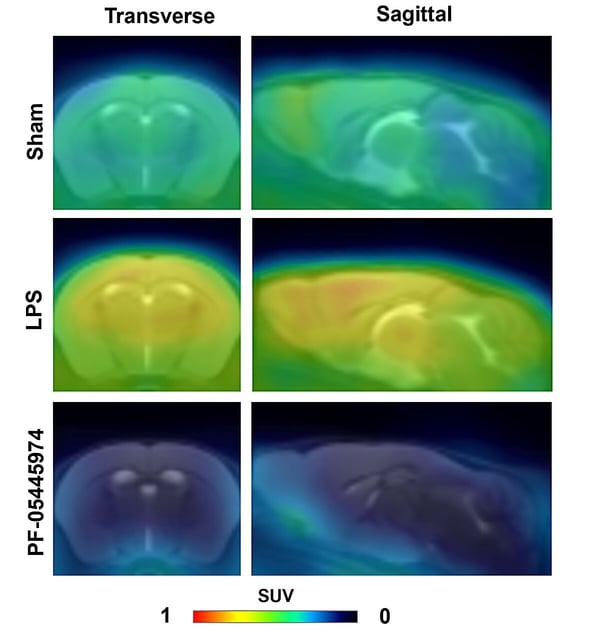Overview
- Developed by an Emory University team, ¹⁸F-PDE-1905 was unveiled at the Society of Nuclear Medicine and Molecular Imaging’s 2025 Annual Meeting in Atlanta.
- The tracer selectively binds to phosphodiesterase4B, an intracellular enzyme that regulates inflammatory signaling within microglia.
- In mouse models of neuroinflammation, ¹⁸F-PDE-1905 showed significantly higher uptake and broader brain distribution than the TSPO-targeted tracer ¹⁸F-D2-LW223.
- Bioinformatics analysis confirmed elevated PDE4B levels in patients and mouse models of Parkinson’s disease and multiple sclerosis.
- Researchers say the tracer’s upstream specificity could enable earlier diagnosis, real-time treatment monitoring, and tailored therapies for Alzheimer’s, ALS and other neurological disorders.

